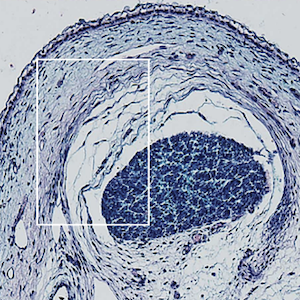Case Reports
Vol. 76 No. 2 (2024)
A rare case of symptomatic creatine kinase elevation in a patient with rheumatoid arthritis treated with baricitinib
Publisher's note
All claims expressed in this article are solely those of the authors and do not necessarily represent those of their affiliated organizations, or those of the publisher, the editors and the reviewers. Any product that may be evaluated in this article or claim that may be made by its manufacturer is not guaranteed or endorsed by the publisher.
All claims expressed in this article are solely those of the authors and do not necessarily represent those of their affiliated organizations, or those of the publisher, the editors and the reviewers. Any product that may be evaluated in this article or claim that may be made by its manufacturer is not guaranteed or endorsed by the publisher.
Received: 21 July 2023
Accepted: 31 January 2024
Accepted: 31 January 2024
1666
Views
571
Downloads












